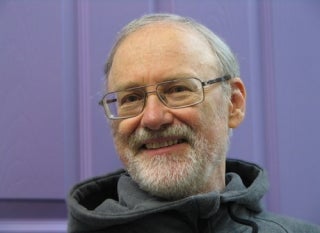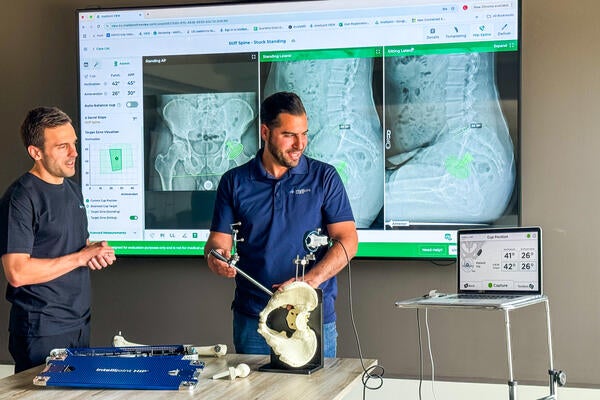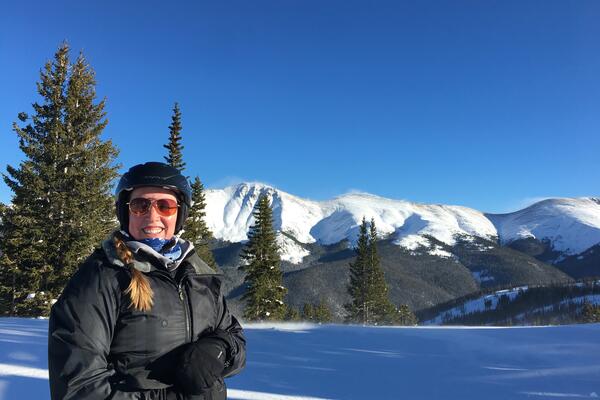
A Waterloo pioneer for LGBTQ rights
45 Years: The University of Waterloo’s Glow Centre for Sexual and Gender Diversity is Canada’s oldest LGBTQ student organization

45 Years: The University of Waterloo’s Glow Centre for Sexual and Gender Diversity is Canada’s oldest LGBTQ student organization
By Heather Bean Marketing and Strategic CommunicationsThese days, Jim Parrott’s favourite way to instigate social change is to walk hand-in-hand down the street with his husband, William.
But Parrott has been working to advance LGBTQ rights ever since he walked into the first meeting of the Waterloo Universities Gay Liberation Movement on March 8, 1971. “I was stunned that there were over a hundred people. It had never occurred to me that so many people would be willing to come out to a public meeting.”
 At the time, he was a new librarian at the University of Waterloo. Forty-five years later, he’s archiving the group’s history: that group is now the Glow Centre for Sexual and Gender Diversity run by Waterloo's Federation of Students, and is Canada’s oldest student LGBTQ organization.
At the time, he was a new librarian at the University of Waterloo. Forty-five years later, he’s archiving the group’s history: that group is now the Glow Centre for Sexual and Gender Diversity run by Waterloo's Federation of Students, and is Canada’s oldest student LGBTQ organization.
Fired by the Stonewall riots, in 1971 the group’s members quickly established social dances and support circles at the university, staged “gay-ins” (showing up en masse to straight events) and traveled to Canada’s first LGBTQ rights demonstration on Parliament Hill. Since then, the group has supported the struggle for spousal benefits rights, adoption rights, and the right to marry.
Parrott met his future husband in 1999 at a Glow meeting. “We found that we started to feel envious of heterosexual couples who walk hand-in-hand. So we did an experiment: we walked hand-in-hand on the Waterloo campus around the Ring Road. It was very scary at first, but we had no problem,” Parrott says. Elated, they began to test the waters downtown. Once or twice a year, people would yell gay slurs as they drove past.
After more than four decades of activism with the group, Parrott says he’s most proud of the projects he’s working on in retirement: the Grand River Rainbow Historical Project, which documents the region’s LGBTQ history, and SPECTRUM, Waterloo Region’s first LGBTQ community centre, which hosts a wide range of social and support groups.
When Parrott travels with his husband they make a point of walking hand in hand. Sometimes, he says, people stop the couple to thank them. “They tell us, ‘I feel less alone now,’” he says. “It’s a political act, but it’s also just that wonderful comforting feeling, to put your hand out and hold the hand of the person you love.”

Read more
Two University of Waterloo affiliated health-tech companies secure major provincial investment to bring lifesaving innovations to market

Read more
New evidence-based classification rules expand access and improve fairness for Para Cross Country and Para Alpine skiers

Read more
Waterloo co-op student applies engineering and tech skills at Caivan to support purpose-built housing and build land-development expertise
The University of Waterloo acknowledges that much of our work takes place on the traditional territory of the Neutral, Anishinaabeg, and Haudenosaunee peoples. Our main campus is situated on the Haldimand Tract, the land granted to the Six Nations that includes six miles on each side of the Grand River. Our active work toward reconciliation takes place across our campuses through research, learning, teaching, and community building, and is co-ordinated within the Office of Indigenous Relations.